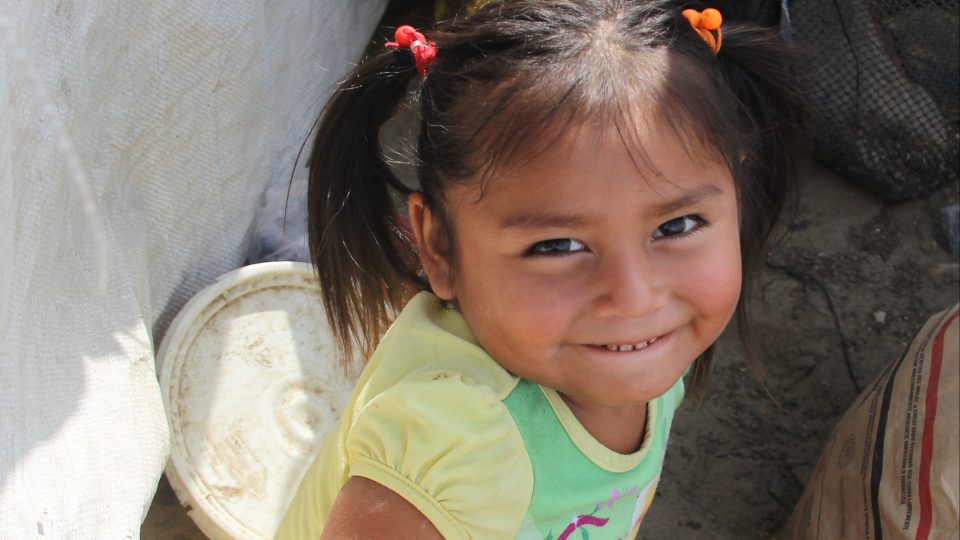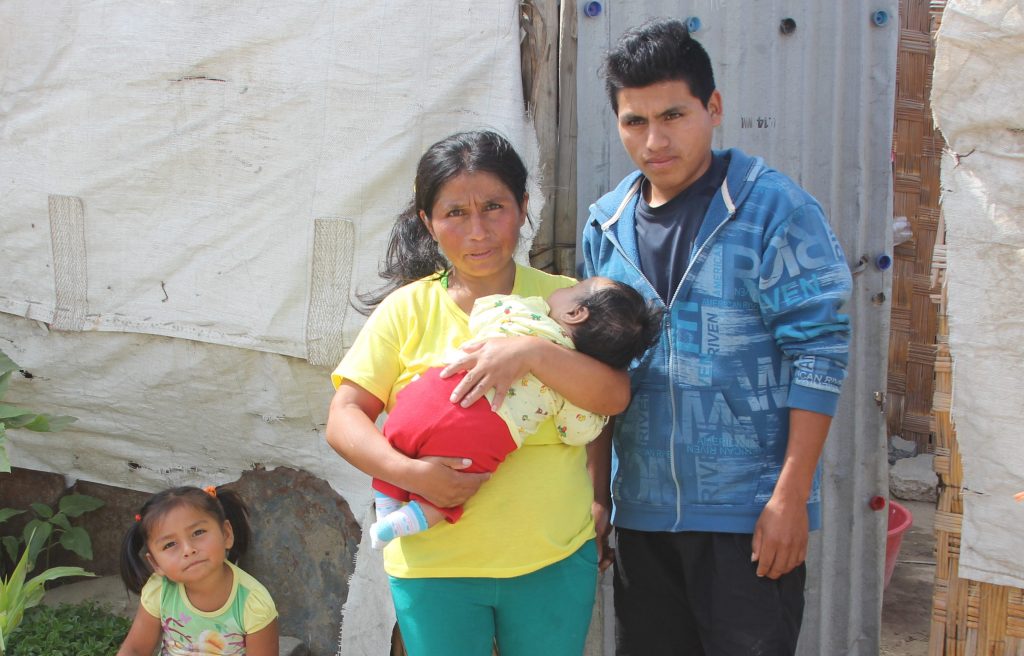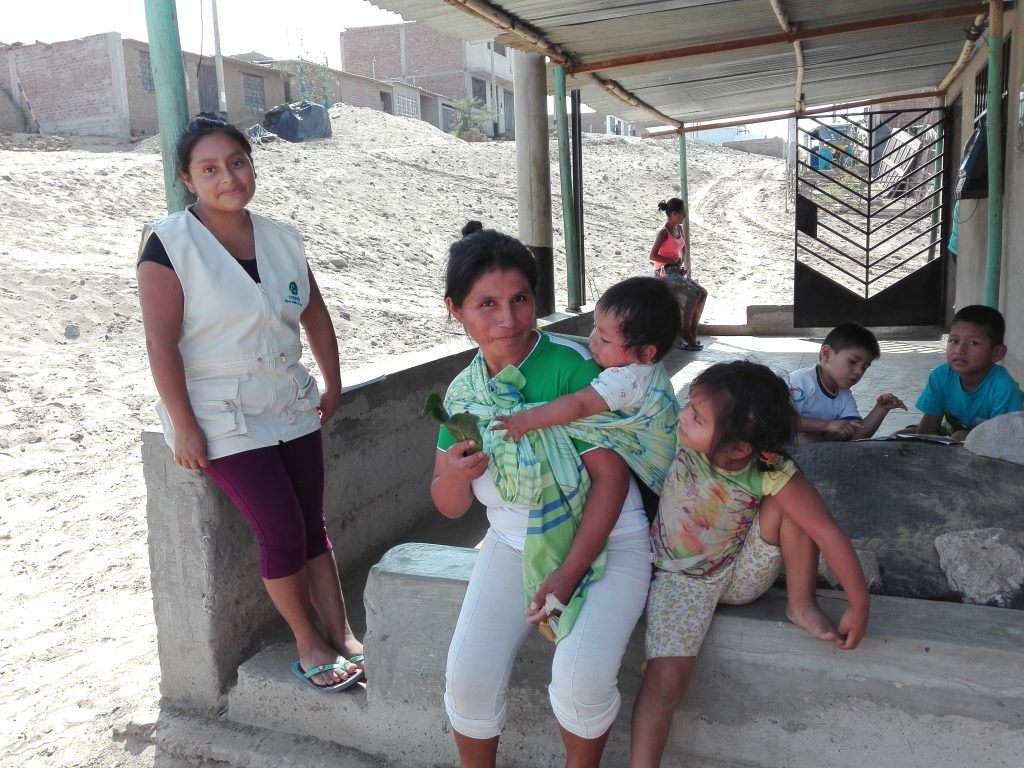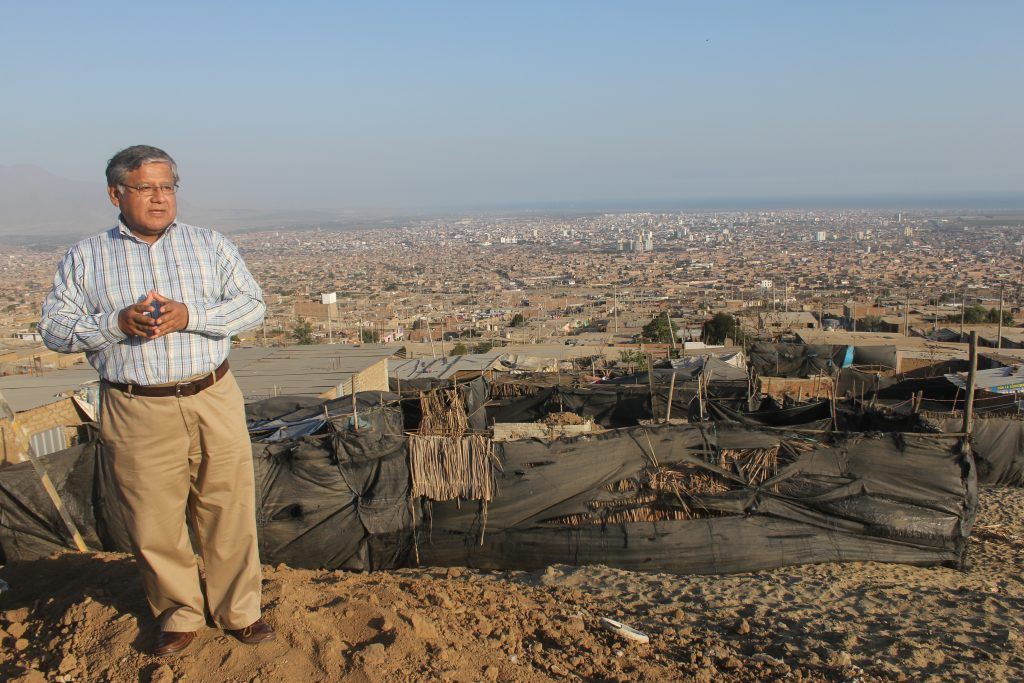Medicine for Sick Children in Peru

According to the Word Bank, almost 385 million children live in extreme poverty worldwide.
In Peru, widespread malnutrition and anemia among pregnant women and young children reflects the impact of extreme poverty, and the harsh reality for the most vulnerable. Within our CHAMPS zones in Huancayo and Trujillo, prevention and treatment for anemia are priorities to ensure that the poorest, most marginalized women and children can lead healthy, productive lives. In Peru, community health agents like Aide make sure that children like Rosita get the medicine they need to recover and reach their full potential.
When I made a home visit, Rosita’s mother told me that the little girl wasn’t doing well. She didn’t want to eat, was very sleepy, and cried a lot. The mom didn’t know what was wrong. A blood test showed that Rosita was anemic. Rosita is now receiving an iron supplement three times a week. I also provide nutritional counseling to her mother. Rosita has a baby brother who is also anemic and we are treating him too. It’s important for these children to get well before anemia affects their development. I want them to go to school and get good grades. When they grow up they can be professionals and have a good impact on this community.
—Aide, CMMB community health agent

Rosita’s family in Peru.
Aide is our community health agent and she has been a faithful friend to me and my children. With free medicine from CMMB, Rosita’s hemoglobin levels have improved and she is feeling much better. I cannot afford to bring my children to the healthcare center. It is a relief that with help from Aide and CMMB, they are getting better.
—Rosa, Rosita’s mother, CMMB beneficiary
Peruvian society still needs to overcome a lot of challenges to ensure that the right to health is a reality for everyone. Poor health is a burden for the poorest families. While some maternal and child health indicators have been improving, Peruvian society is challenged by chronic malnutrition and anemia among children and pregnant women. CMMB’s First 1,000 Days program is implementing a primary healthcare approach to address the social factors that contribute to current malnutrition and anemia. We are working to implement a primary healthcare approach to address all the factors that contribute to malnutrition and anemia so it’s not only a clinical response. Our work with families includes:
- Improving access to safe water and sanitation
- Educating families with healthy practices
- Supporting improved nutrition
- Empowering families with micro-economic initiatives
The impact of the First 1,000 Days program on children living with chronic malnutrition, and anemia has been incredible. Economic opportunities mean a small increase in income that is used to buy better food. Parents are proud that they have the resources to contribute to their children’s health and development.
—Ariel Frisancho, MD, CMMB country director, Peru
In 2016, iron supplementation programs supervised by CMMB’s community health agents in Peru resulted in phenomenal recovery rates—32% among children and 73% among pregnant women.

